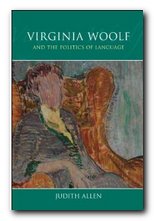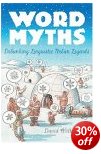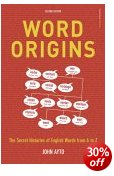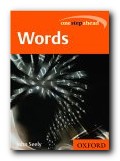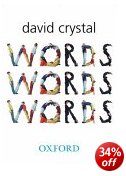free pages from our English Language software program
Verbs – definition
![]() A verb expresses an action or a state of being.
A verb expresses an action or a state of being.
![]() Most statements in speech and writing have a main verb.
Most statements in speech and writing have a main verb.
Examples
![]() The following verbs are expressed in their infinitive form:
The following verbs are expressed in their infinitive form:
to sing to eat to run to travel to be to have to intend to feel to paint
Use
![]() Verbs are traditionally expressed along with the appropriate pronouns as follows:
Verbs are traditionally expressed along with the appropriate pronouns as follows:
Singular Plural I run We run You run You run He runs They run She runs — It runs —
![]() This is the conjugation of the verb ‘to run’.
This is the conjugation of the verb ‘to run’.
![]() Verbs are expressed in tenses which place the statement in a point in time. Broadly speaking these are are the past, present, and future tense:
Verbs are expressed in tenses which place the statement in a point in time. Broadly speaking these are are the past, present, and future tense:
PAST I ran [yesterday] PRESENT I run [today] FUTURE I shall run [tomorrow]
![]() The verbs ‘to be’ and ‘to have’ are the most commonly used auxiliary verbs and they work alongside the main verbs in any statement.
The verbs ‘to be’ and ‘to have’ are the most commonly used auxiliary verbs and they work alongside the main verbs in any statement.
![]() NB! English is the only European language which doesn’t have a future tense. It uses an auxiliary verb (‘shall’) to indicate the future.
NB! English is the only European language which doesn’t have a future tense. It uses an auxiliary verb (‘shall’) to indicate the future.
![]() Traditionally, children are taught that verbs are doing words. This is a very simplistic definition, although it is valid for most normal purposes:
Traditionally, children are taught that verbs are doing words. This is a very simplistic definition, although it is valid for most normal purposes:
John went to the bank.
My mother arrives on Saturday.
Simple Simon met a pieman.
![]() The verb is a very important part of the sentence. It is a necessary part of every fully expressed predicate – the part of the sentence which normally follows the subject.
The verb is a very important part of the sentence. It is a necessary part of every fully expressed predicate – the part of the sentence which normally follows the subject.
![]() The verb is the grammatical instrument which gives us information about the person or thing which is the subject.
The verb is the grammatical instrument which gives us information about the person or thing which is the subject.
![]() Consider the following sentence:
Consider the following sentence:
Jane grasped the neckace with joy and placed it in the carved wooden box.
![]() We are given essential information here by means of two verbs – ‘grasped’ and ‘placed’. They express the subject’s physical and psychological attitude, and they also place the action in a temporal context by the fact that they are verbs in the past tense.
We are given essential information here by means of two verbs – ‘grasped’ and ‘placed’. They express the subject’s physical and psychological attitude, and they also place the action in a temporal context by the fact that they are verbs in the past tense.
![]() These verbs in this context are lexical items, even though they are also doing essential grammatical work. They are lexical in the sense that they are giving detailed information regarding the actions of the subject.
These verbs in this context are lexical items, even though they are also doing essential grammatical work. They are lexical in the sense that they are giving detailed information regarding the actions of the subject.
![]() In other contexts, the verb does take a more mechanically grammatical role, as in the following sentence:
In other contexts, the verb does take a more mechanically grammatical role, as in the following sentence:
James is absolutely sure that Alice is the right choice for the executive post..
![]() Here the verb ‘to be’ is used twice to express the information. The verb’s function here is almost entirely grammatical rather than lexical. The lexical information is given by means of the two adverbs ‘absolutely’ and ‘sure’, the adverbial phrase ‘right choice’, and the phrase ‘executive post’.
Here the verb ‘to be’ is used twice to express the information. The verb’s function here is almost entirely grammatical rather than lexical. The lexical information is given by means of the two adverbs ‘absolutely’ and ‘sure’, the adverbial phrase ‘right choice’, and the phrase ‘executive post’.
![]() The verb ‘is’ puts the information in the present tense and facilitates the expression of James’ state of mind.
The verb ‘is’ puts the information in the present tense and facilitates the expression of James’ state of mind.
![]() Advertisers trade on the grammatical dynamism of the verb when space is at a premium. The following slogans all use the verb in a lexical mode, which places the focus on the action.
Advertisers trade on the grammatical dynamism of the verb when space is at a premium. The following slogans all use the verb in a lexical mode, which places the focus on the action.
It’s good to talk British Telecom Makes the going easy British Rail slogan Wash and go shampoo ad Pick up a Penguin chocolate biscuits The listening bank Midland Bank ad
![]() Road signs also need to be succinct, so verbs play a crucial part in the best known:
Road signs also need to be succinct, so verbs play a crucial part in the best known:
Keep left Stop Give way
![]() All of these are strong imperatives. The recent ‘Kill your speed’ is not only imperative but emotive by the use of the word ‘kill’, here applied as a metaphor.
All of these are strong imperatives. The recent ‘Kill your speed’ is not only imperative but emotive by the use of the word ‘kill’, here applied as a metaphor.
![]() Verbs are employed to critical effect by poets. The following well known extracts show the powerful effect of the lexical verb.
Verbs are employed to critical effect by poets. The following well known extracts show the powerful effect of the lexical verb.
My heart aches and a drowsy numbness pains my sense
As though of hemlock I had drunk one moment past
And Lethewards had sunk.[John Keats]
![]() Here ‘aches’ and ‘pains’ both in the present tense are strongly evocative of a listless state of being. The next active verb ‘drunk’ acts as a clear connection between the state of being and the possible cause, at the same time as shifting the action from the present to the hypothetical past. ‘Sunk’ completes the sequence by suggesting physical movement as a result of all the preceding verbal information.
Here ‘aches’ and ‘pains’ both in the present tense are strongly evocative of a listless state of being. The next active verb ‘drunk’ acts as a clear connection between the state of being and the possible cause, at the same time as shifting the action from the present to the hypothetical past. ‘Sunk’ completes the sequence by suggesting physical movement as a result of all the preceding verbal information.
![]() Verbs can also be transformed into other grammatical functions and in many cases this results in an increased dynamism.
Verbs can also be transformed into other grammatical functions and in many cases this results in an increased dynamism.
Adverbs ‘Thats nice’ he said mockingly, as she tried her best to pick up the broken vase. Adjectives The moving finger writes, and having writ moves on. Nouns He always insisted on doing all his own washing.
![]() Conversely, other parts of speech can be used as verbs. American English is replete with such usages, some of which have been assimilated into British English.
Conversely, other parts of speech can be used as verbs. American English is replete with such usages, some of which have been assimilated into British English.
![]() Young people now go ‘clubbing’ on Saturday evenings. ‘Parenting’ has now become the term for child-rearing. A recent court case in America revealed that the defendent had been ‘incested’.
Young people now go ‘clubbing’ on Saturday evenings. ‘Parenting’ has now become the term for child-rearing. A recent court case in America revealed that the defendent had been ‘incested’.
Self-assessment quiz follows >>>
© Roy Johnson 2004
English Language 3.0 program
Books on language
More on grammar
